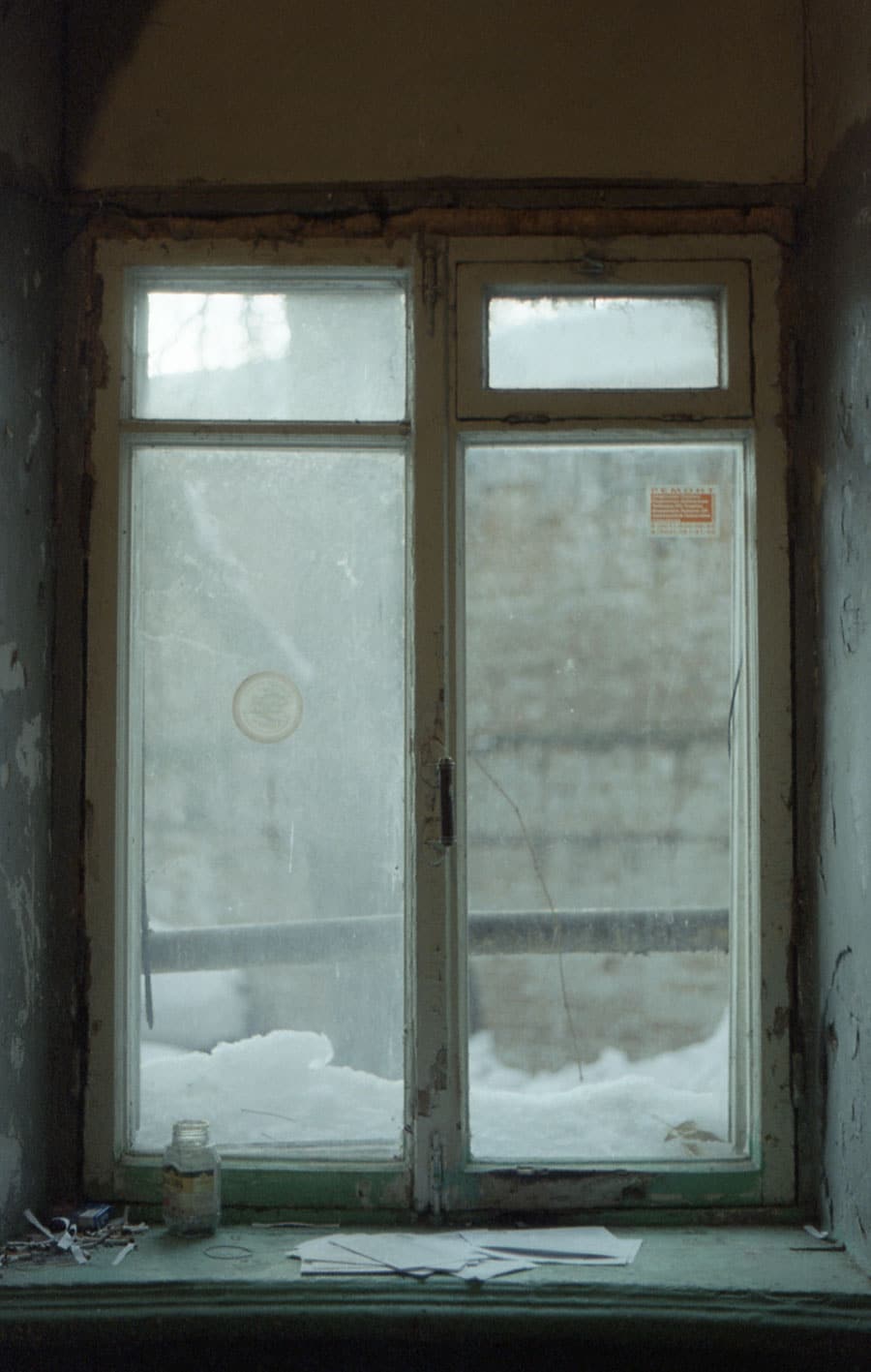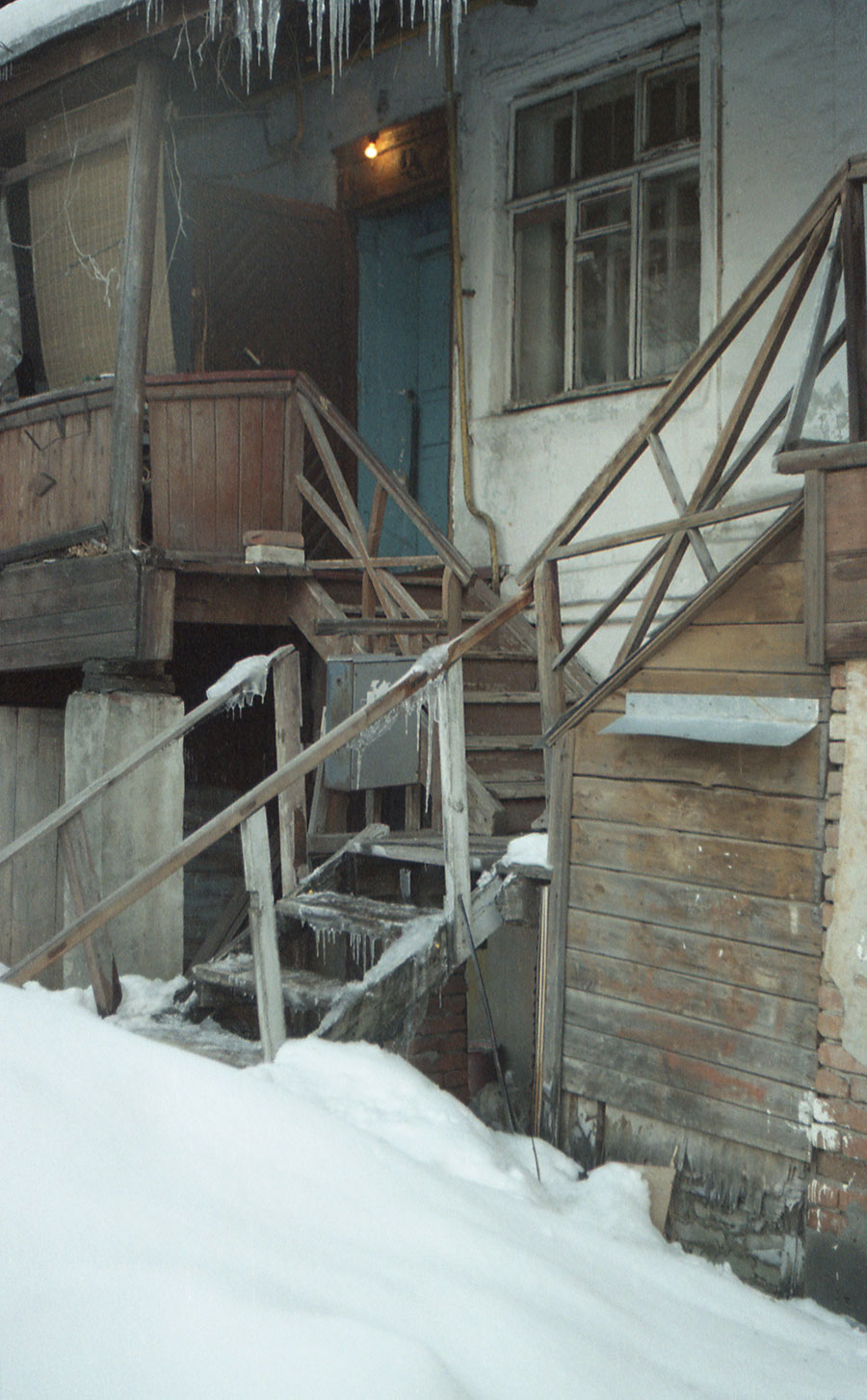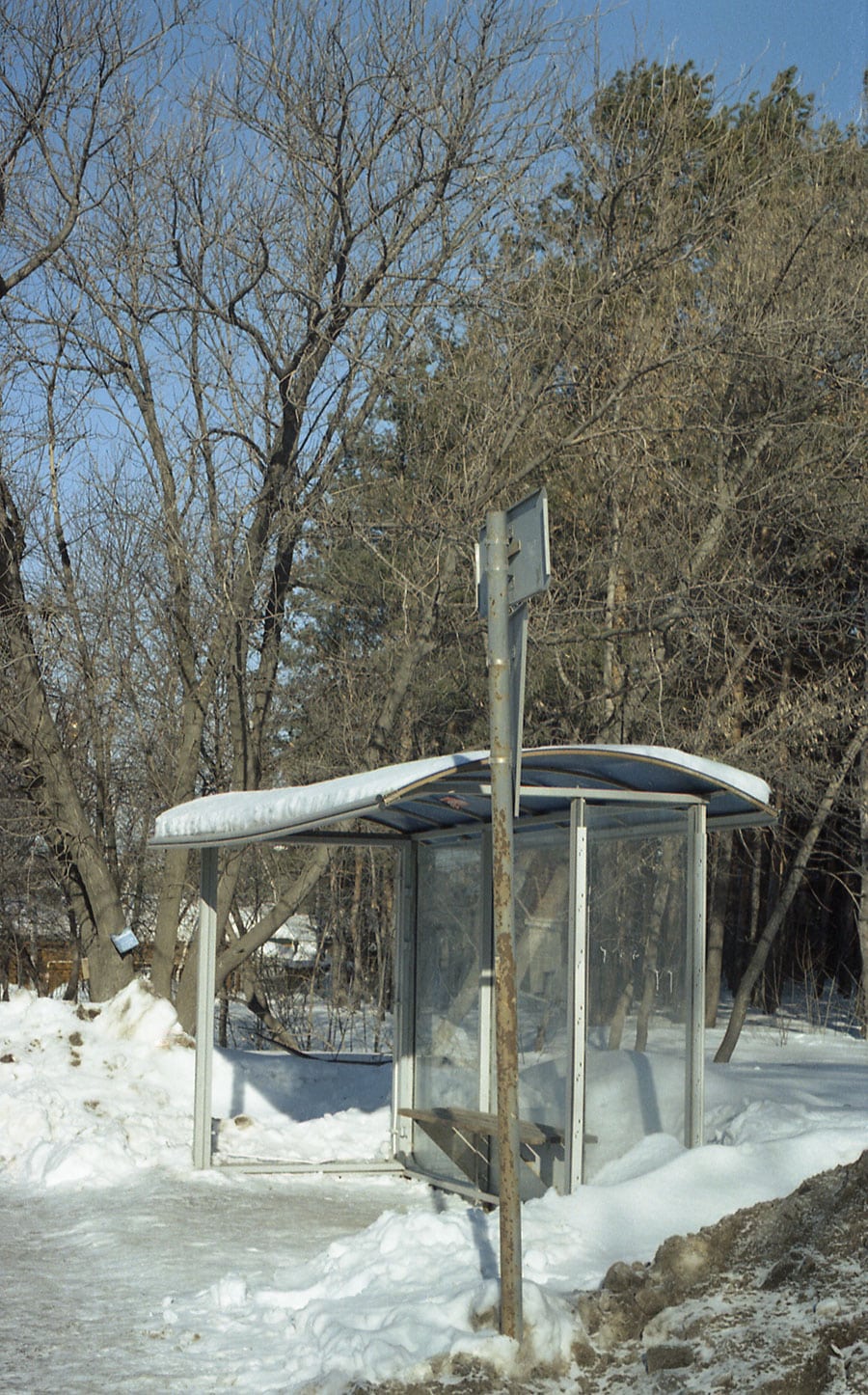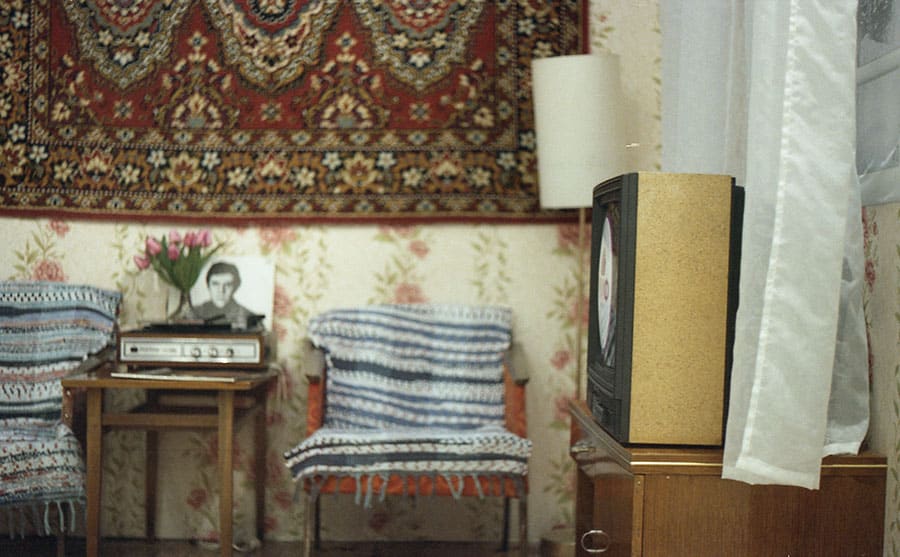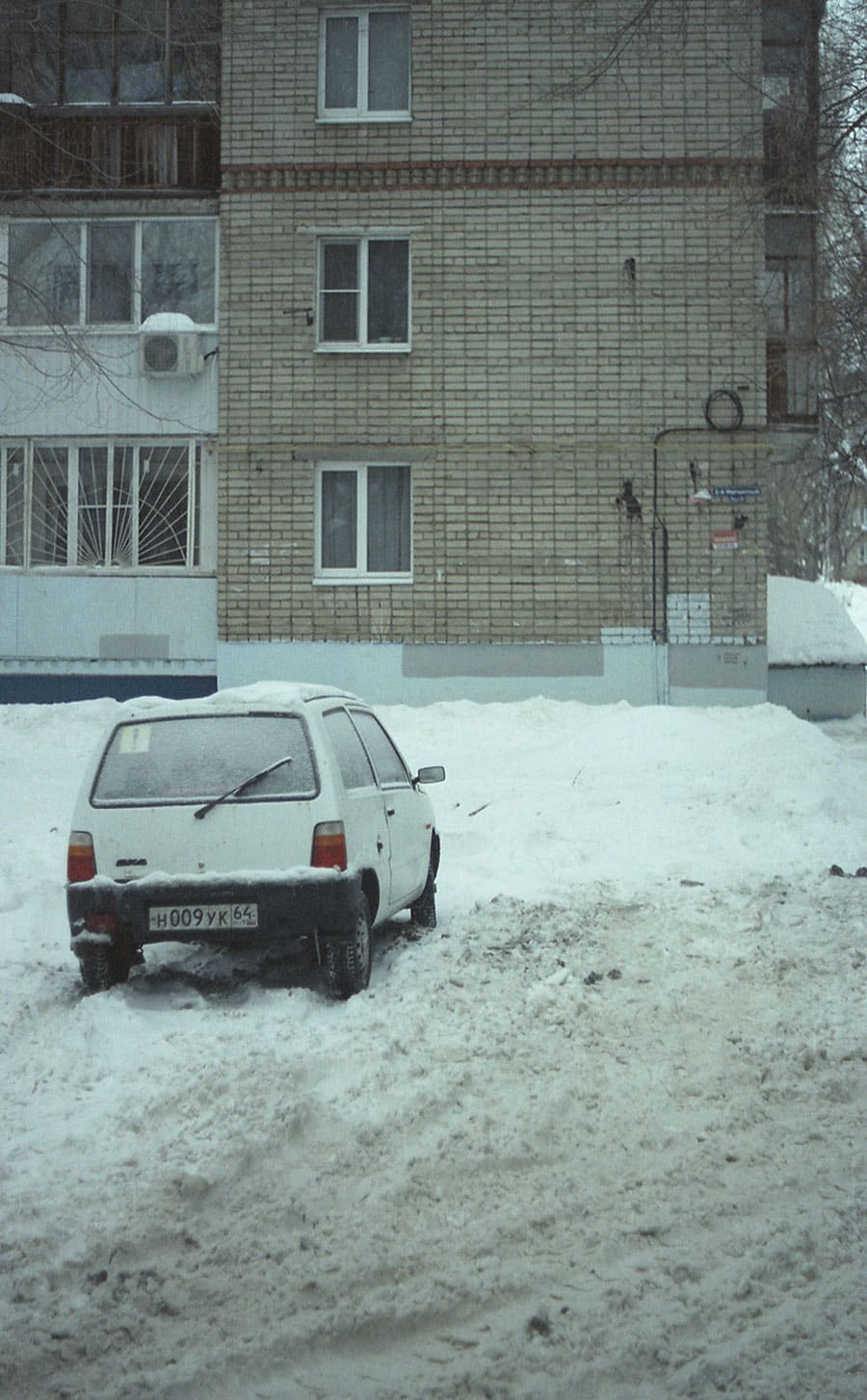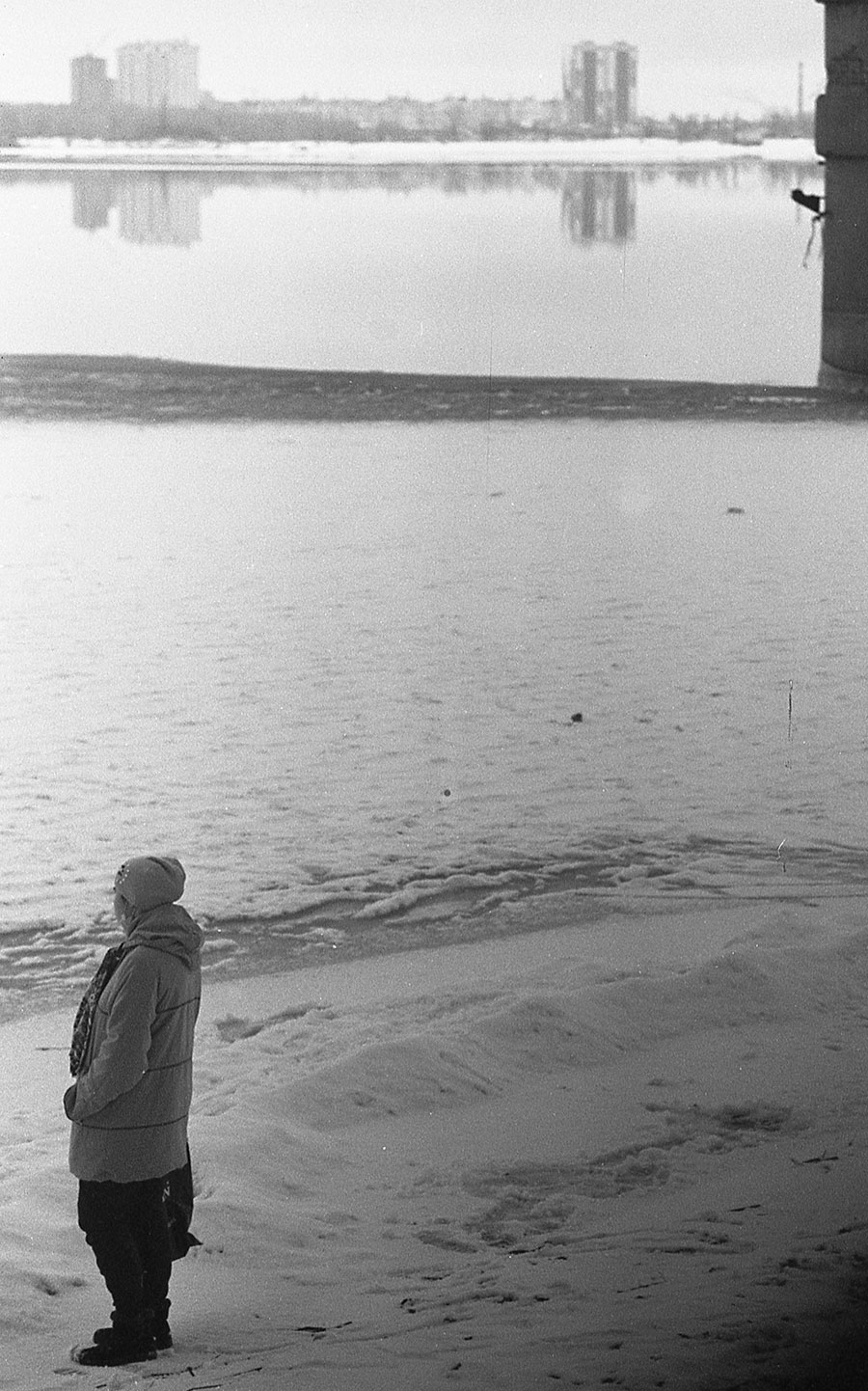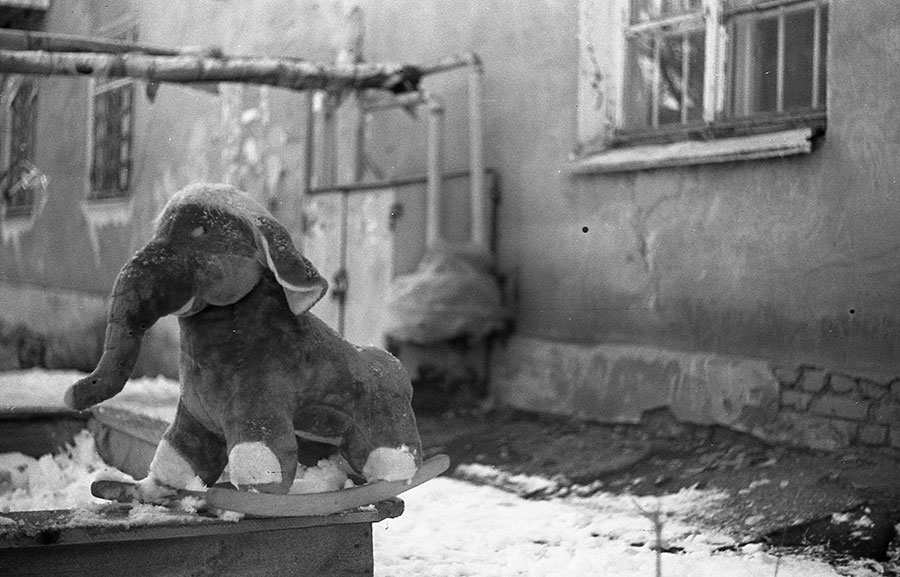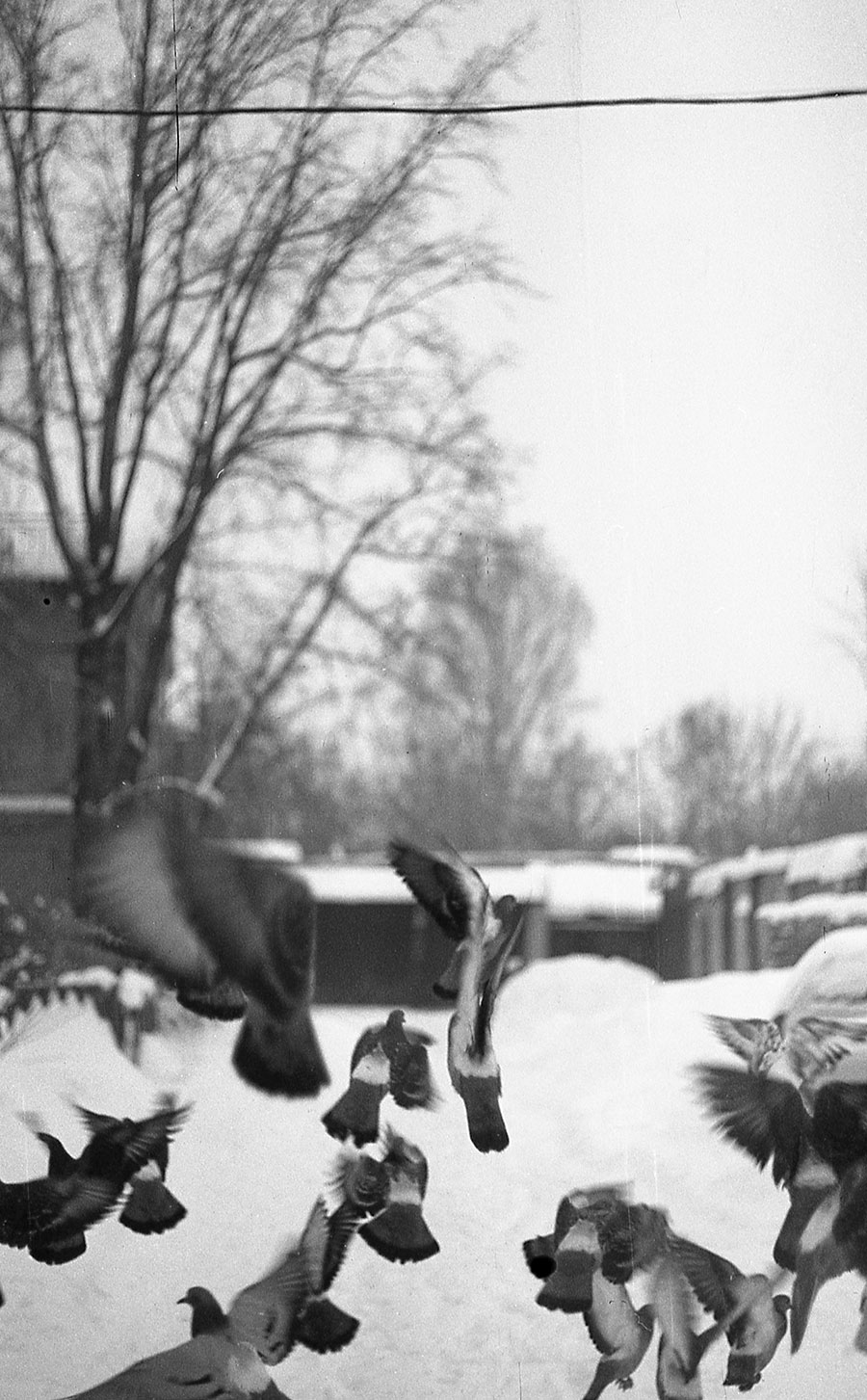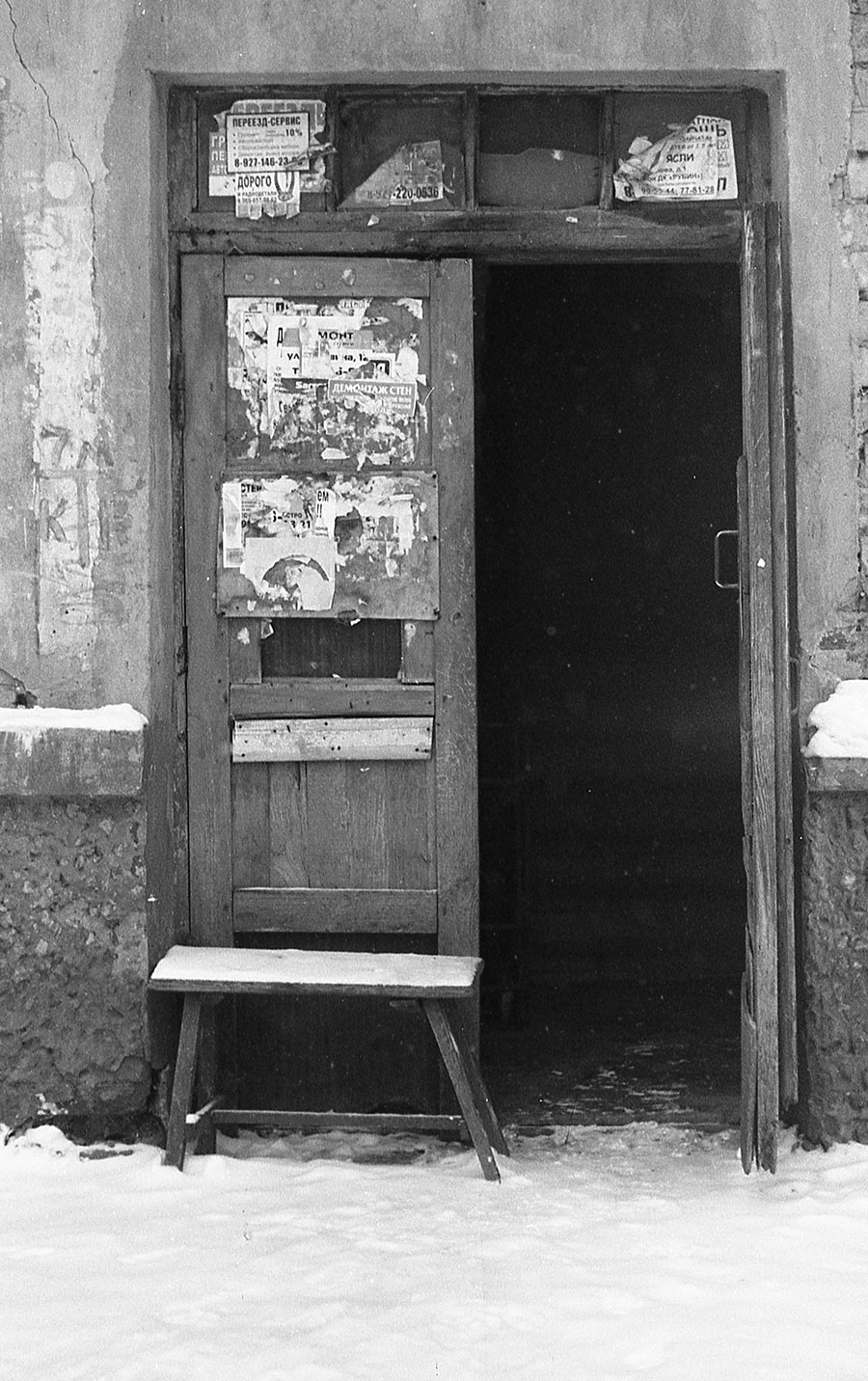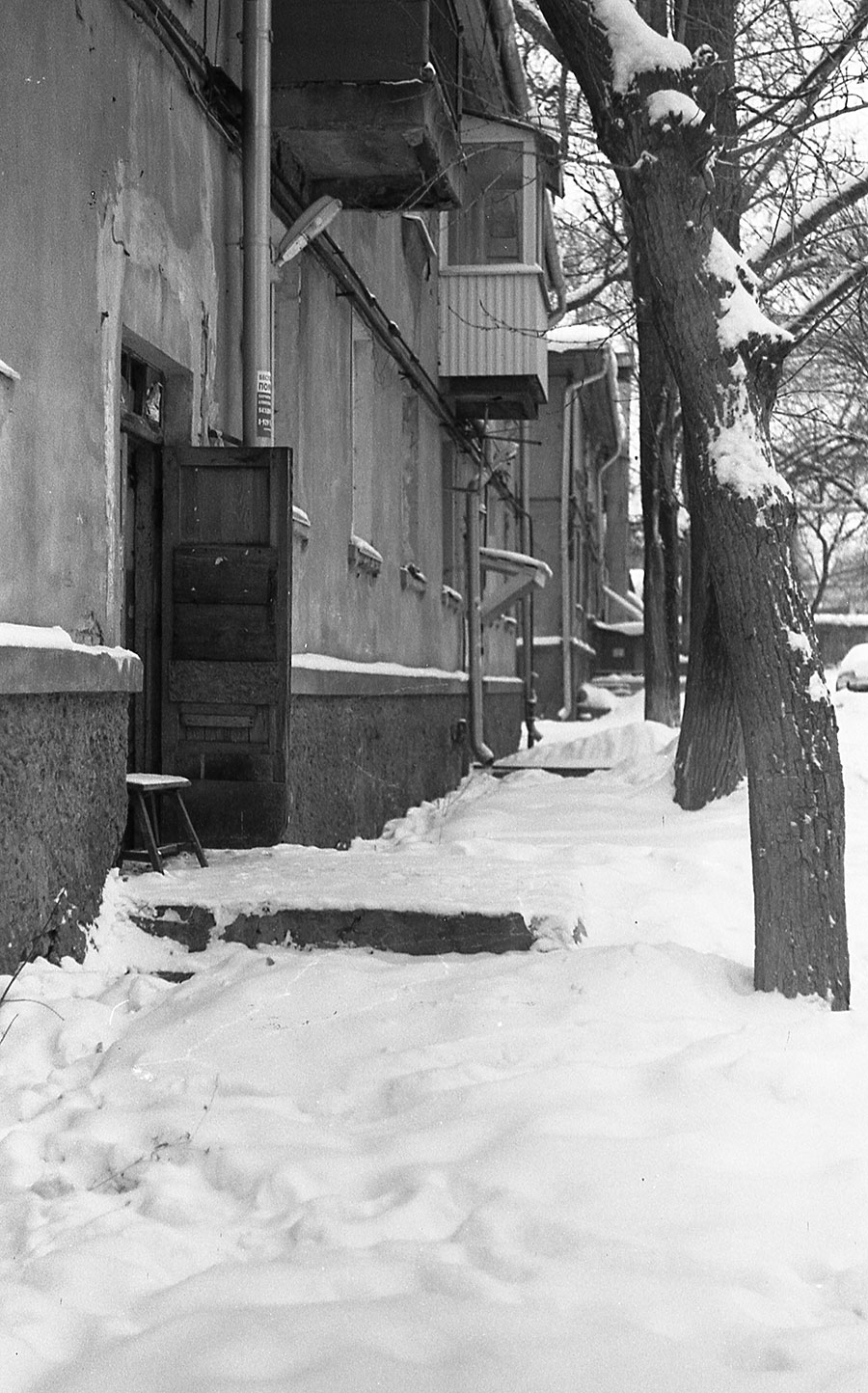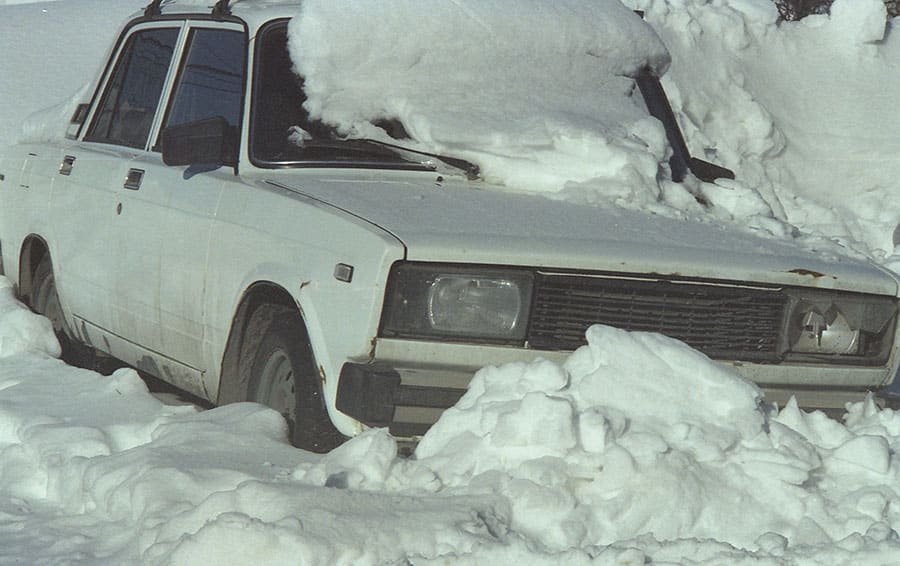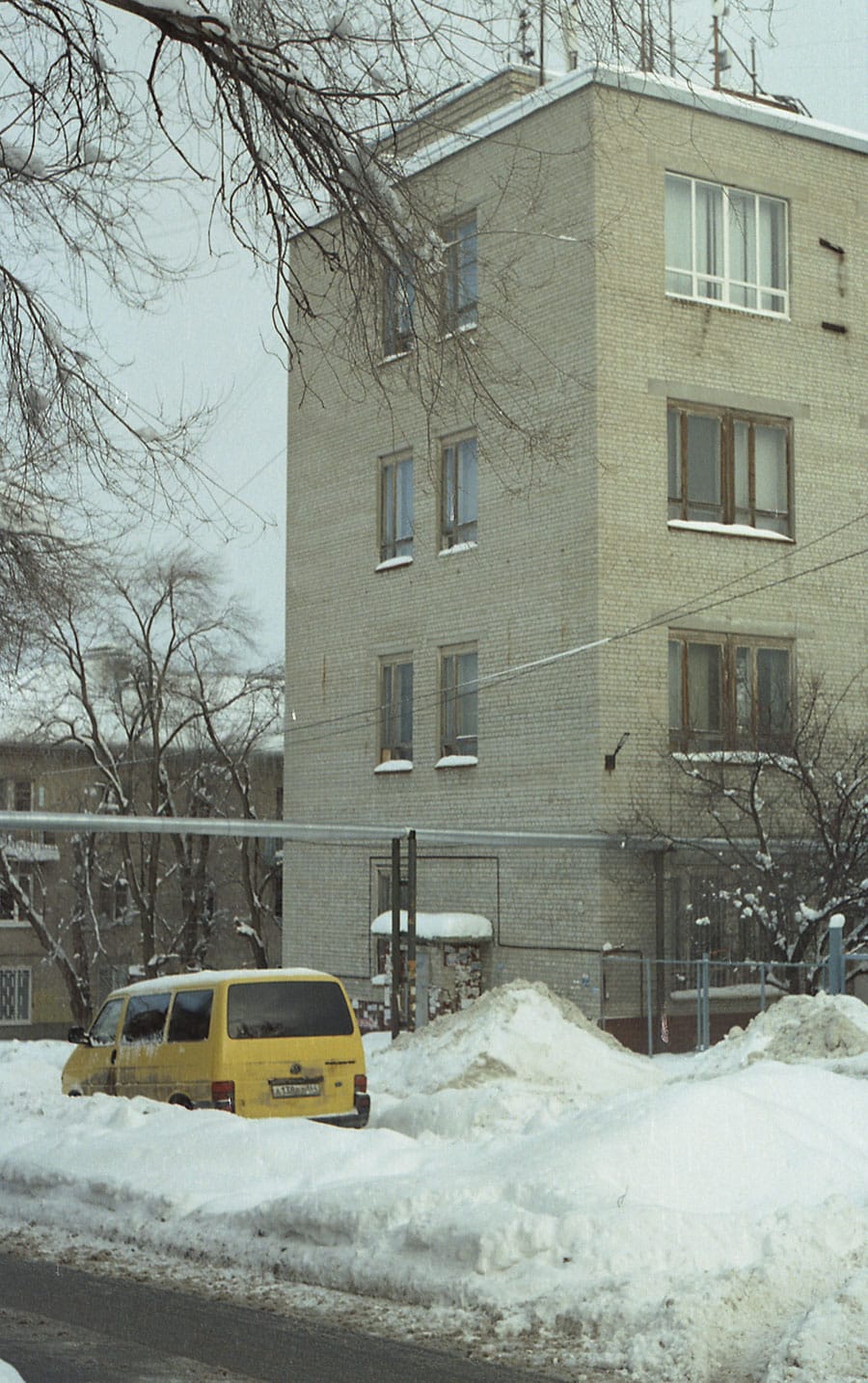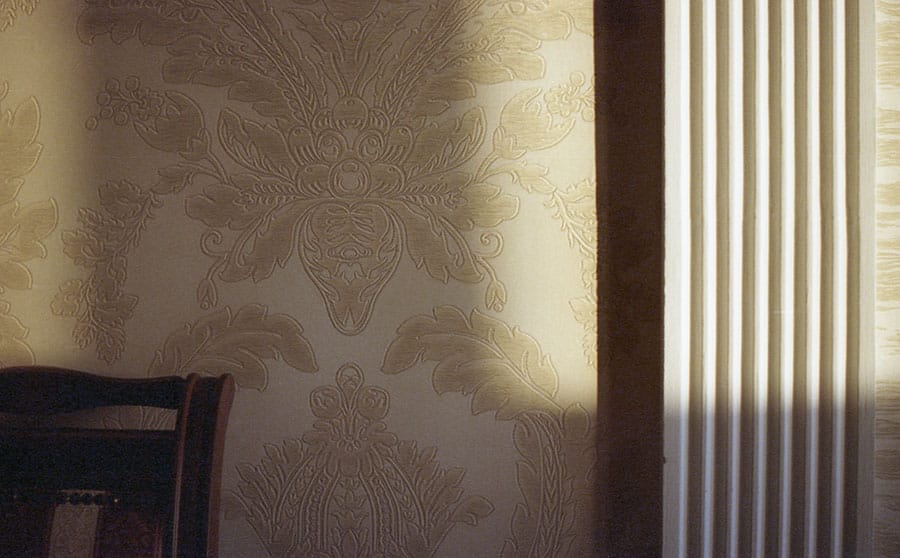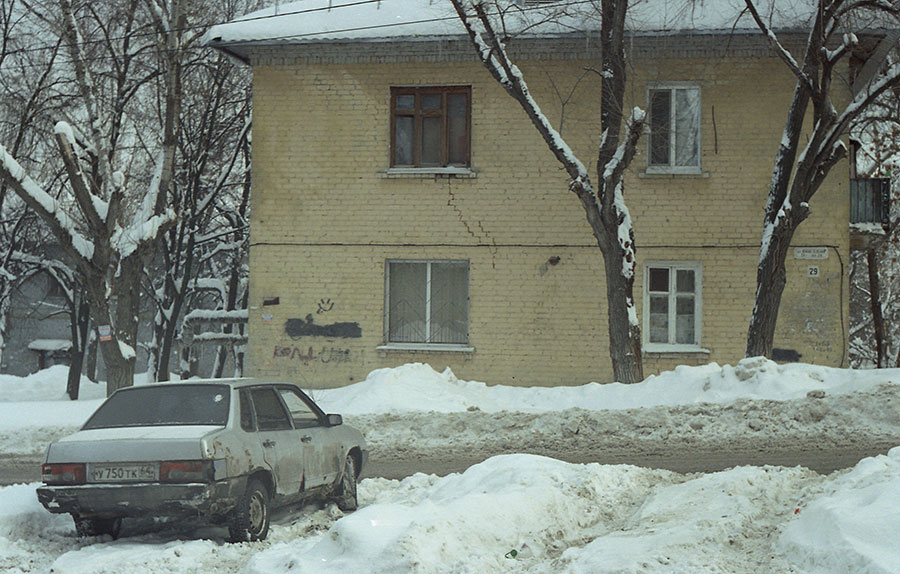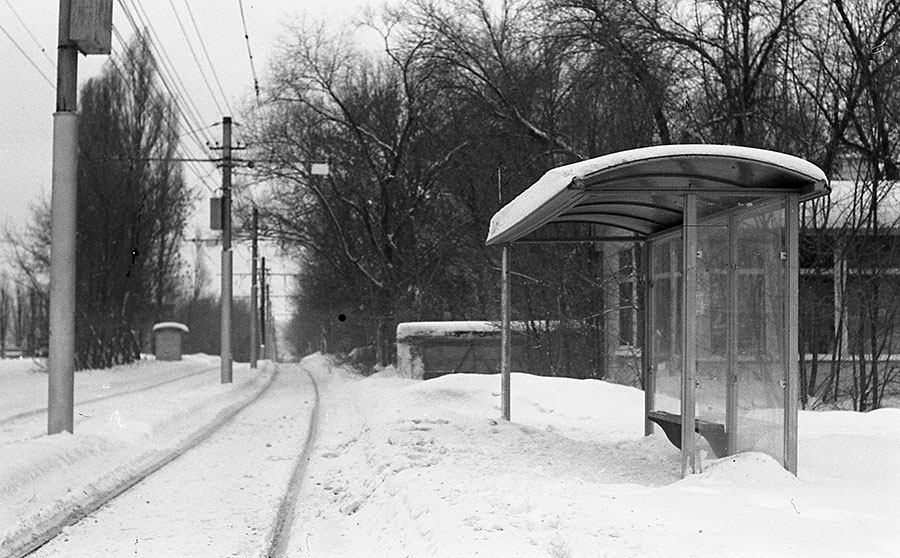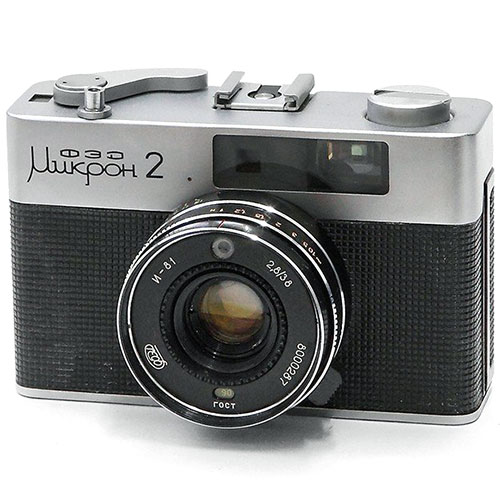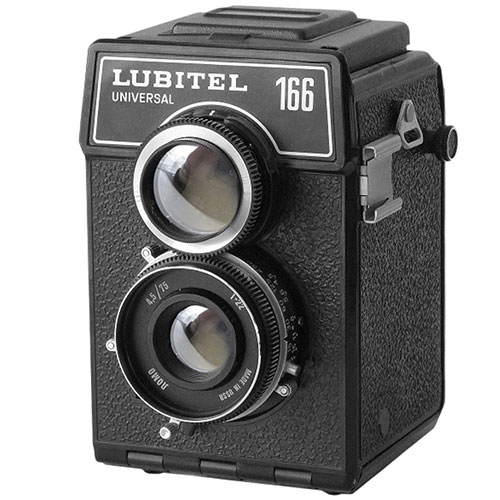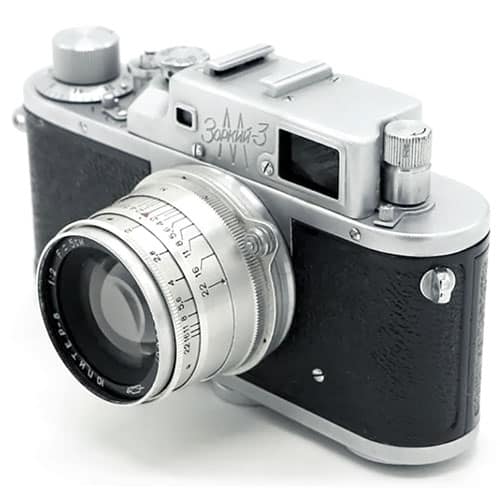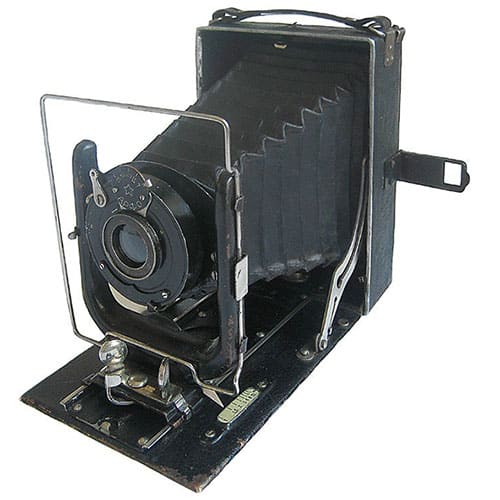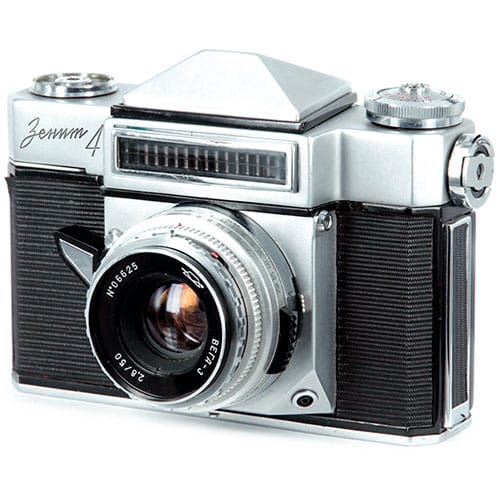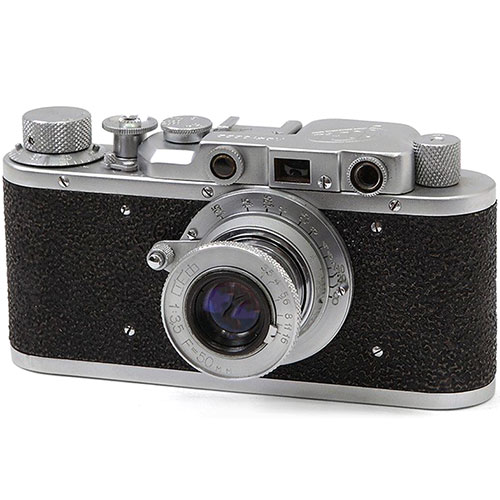Zenit-16
Zenit-16 is a camera with semi-automatic TTL exposure setting, curtain-type cloth shutter with shutter speed range from 1/15 to 1/1000s and aperture control mechanism.
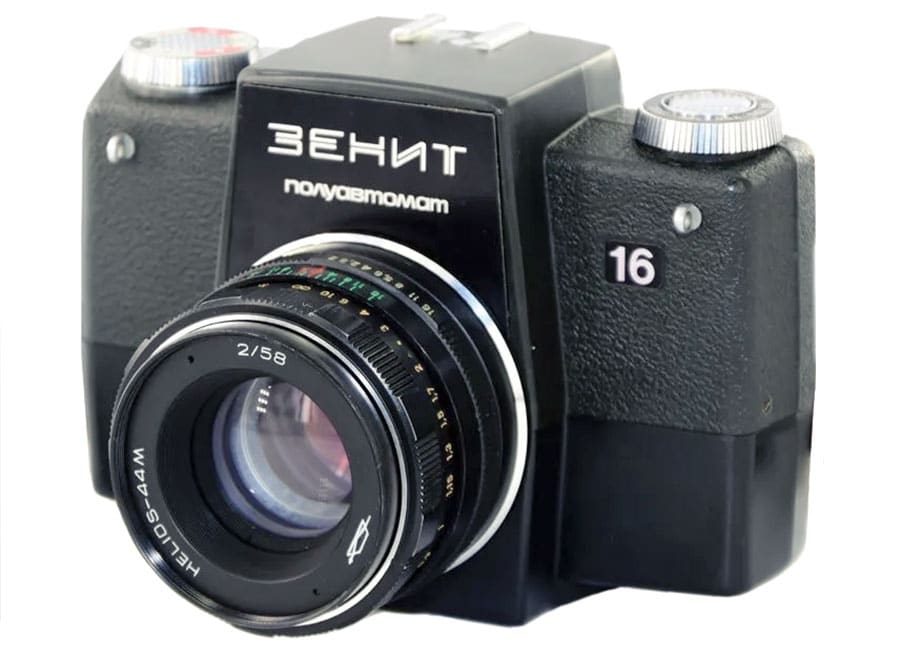
The Zenit-16 camera was a very unusual device, especially by Soviet standards. The unusualness of this camera manifested itself in everything from the appearance to the design of the back cover, which leaned down, the lock from which was the frame of the viewfinder eyepiece.
Zenit-16 Specifications
- Type: 35mm SLR camera
- Manufacturer: KMZ plant
- Production period: from 1972 to 1977
- Format: 24x36cm on 135 film
- Lens mount: m42 thread mount
- Lens: Helios-44m f2.0/58
- Viewfinder image field size: 22×33mm
- Shutter: focal-plane shutter with speeds from 1/15 to 1/1000 sec.
- Viewfinder: SLR with non-removable pentaprism
- Lighmeter: built-in TTL light meter
- Flash synchronisation: sync socket “X”, sync speeds from 1/125 s and longer.
- Selftimer: none
- Weight: 900 grams
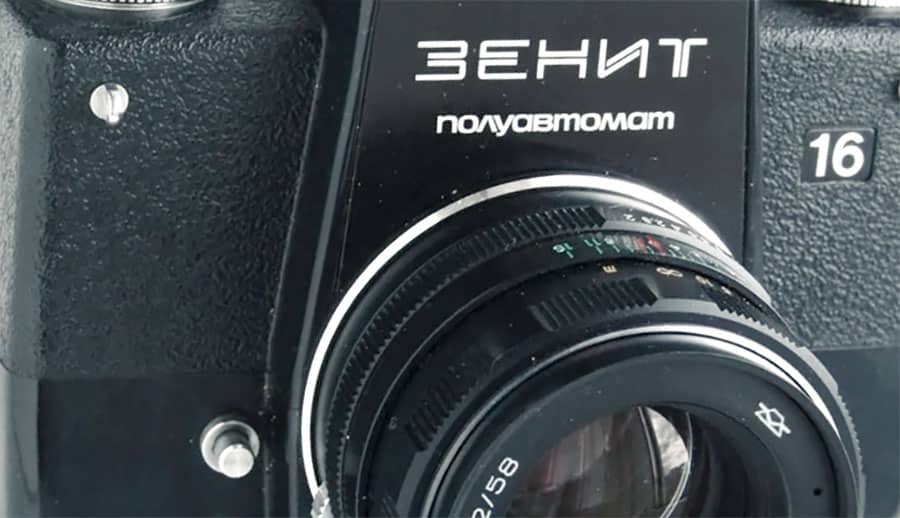
Zenit-16 had the first Soviet serial electronic exposure control system. For the first time at KMZ, a light indication was used in the viewfinder. The camera has an original design and a completely plastic body.
As mentioned above, even the way the back wall opens was made as unusual as possible. Why were these innovations made? Unclear. But it looks very unusual.
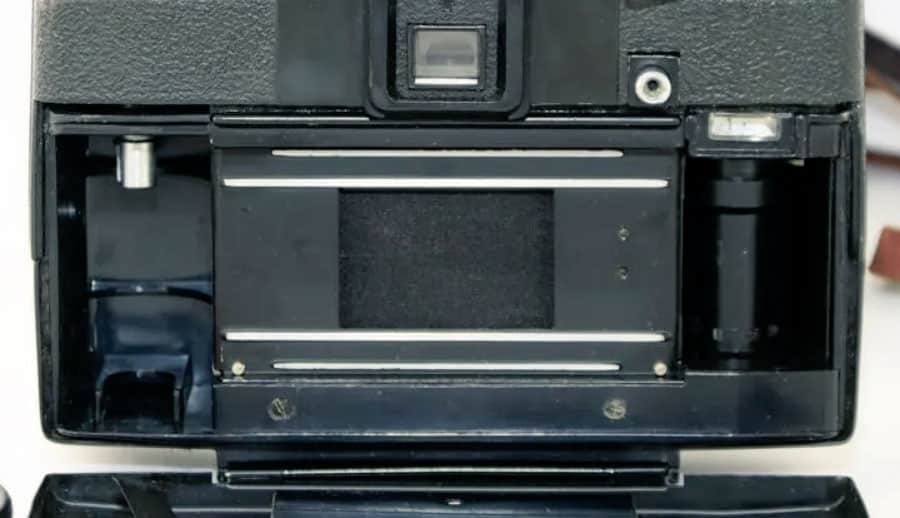
The camera has a standard M42 mount, which allows you to use a large number of different lenses with this mount, manufactured at the KMZ factory.
Zenit-16 was equipped with a Helios-44M f2.0/58 lens, built according to the Carl Zeiss Planar scheme, which was standard for most Soviet photographic equipment of those years produced at the KMZ plant. This lens has classic characteristics for Helios. The lens has good sharpness in the center, and not bad at the edges, and besides, the classic swirling bokeh.
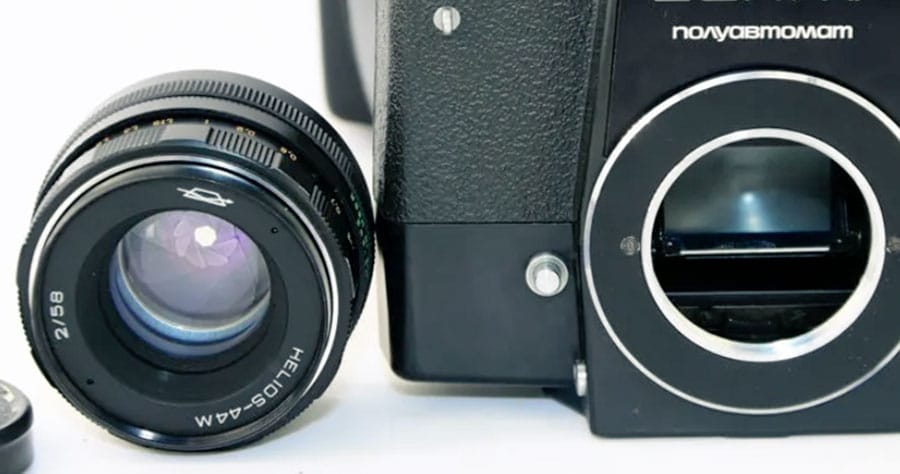
Zenit-16 was equipped with a rather unusual shutter with shutter speeds from 1/15 to 1/1000 sec. This is two shutter speeds more than most other Zenits of those years, but due to the unreliability of this shutter, these advantages do not make any sense.
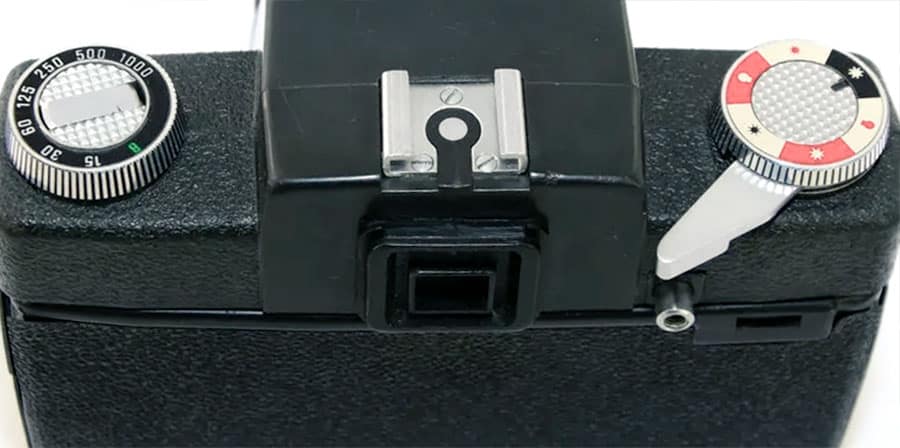
The camera is made in a rather interesting plastic case, and despite the square outlines, it will be quite comfortable for you to hold this device in your hands, thanks to texturing.
Zenit-16 was a completely innovative camera for the Soviet market in the early 70s, but like most of these innovative devices created in the USSR, the Zenit-16 camera turned out to be an unreliable device and was soon discontinued.
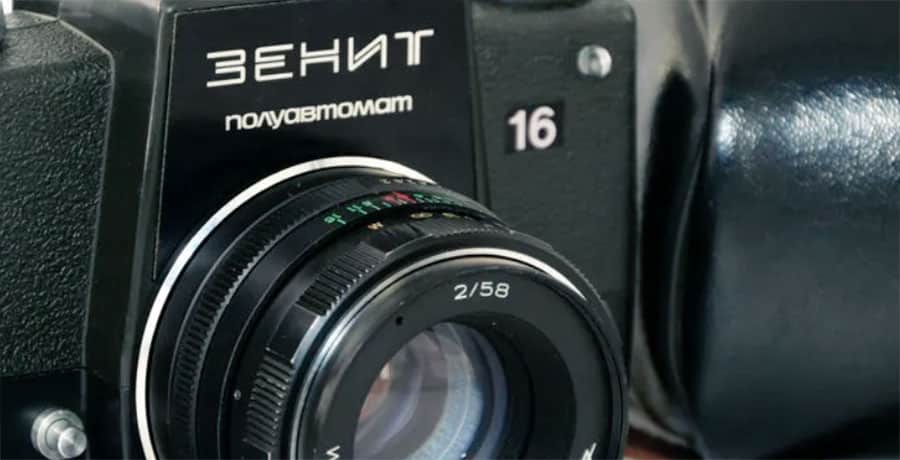
Conclusion
The Zenit-16 camera is an extremely unreliable device, like many other Soviet cameras, which, combined with a relatively high price, makes this camera not the best choice for a modern film photography enthusiast.
For a significantly lower cost, you can buy a much better camera made in the Soviet Union, such as Zenit-122 or Zenit-TTL. If you want something even better, then you can buy Kiev-19, which is better than the camera we are writing about in this article in all respects.
ZENIT-16 PHOTOS

